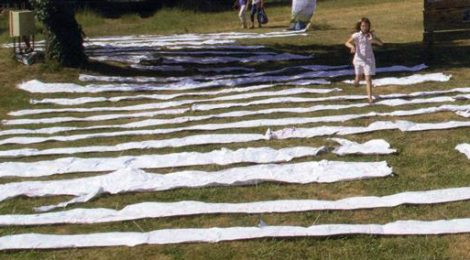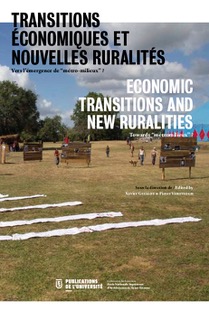
Economic Transitions and New Ruralities, towards “metromilieux”?
This book is the fruit of a symposium organised by ENSAP Bordeaux in Sabres (Gironde), bringing together two partners: the Parc naturel régional des Landes de Gascogne and the ARENA AlterRurality network.
Over the last three decades, metropolisation and economic growth have been the two sides of a single approach of the world that have largely determined the practises of land use planning, at all scales of space. Accordingly the city and the urban have been central to academia’s interests. In this context, there are no alternatives to “everyone is urban.” There are no ways to view the world other than through innovation, performance and competition, which our major high-density regions strive for in order to attract new populations and gain market share in the globalised economy. This topic has been studied in depth. To a great extent, the resulting work has supported and praised the urban policies of recent decades. It has rarely criticised these policies.
The stance of this book deviates from this urban-centric approach to the world and from this metropolitan vision of the development of our contemporary societies. It offers a radically different reading grounded in the urgent need to present another perspective, acknowledging the ecological and social pitfalls caused by the urban-centric approach. We believe that today there is a need to open a debate of another type, one that rethinks the status of rural space that our society has inherited, and imagines what in the future will be an “alter-rurality” (Versteegh-Meeres 2015), combined with a form of regional equity (Guillot 2016) with the metropolitan system.
The book introduces another factor, pertaining to the socio-ecological transition, to conceive of the current status of rural
space. This is a broad issue that could be risky to broach because it falls outside our architectural expertise. Yet we contend that it is crucial to do so at this stage in order to advance in our argument. The reason for this is simple and takes us back to our opening remarks: neo-liberalism and urban-centrism are two phenomena that feed and justify each other. Hence constructing another argument on rural space requires a shift that we view as indispensable: understanding and undoing this alliance and presaging alternatives to it.
Editors: Guillot Xavier and Versteegh Pieter
Authors:
Pieter Versteegh and Xavier Guillot
Frédéric Bonnet
Geneviève Azam
Chris Younès
Thierry Jeanmonod
Luc Bousquet and Fabienne Joly
Cécile Léonardi, Clémence Dupuis and Stéphanie Dadour
Claire Parin, Christophe Bouriette and Jacques Robert
Sylvain Pezon
Juliane Court, Samuel Rio-Derrey and David Robin
Arthur Bel
Abdourahmane Ndiaye
Vincent Banos and Jeoffrey Dehez
Jennifer Buyck and Théo Courcoux
Claudia Bode
Cyrille Marlin
Frédéric Gilbert
Diane Camus
Martin Chénot
Publication Date: 2019
Page Count: 224
Language: French and English
Color: Full Color
Related Categories: Architecture / Urban & Land Use Planning
Order online at: https://erps.archi.fr/publications/transitions-economiques-et-nouvelles-ruralites/


